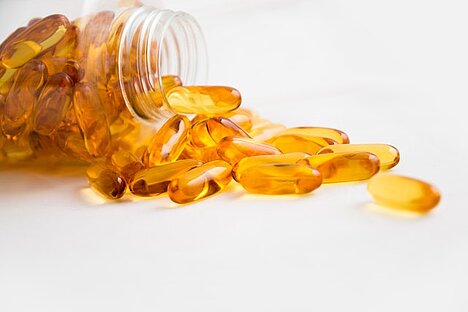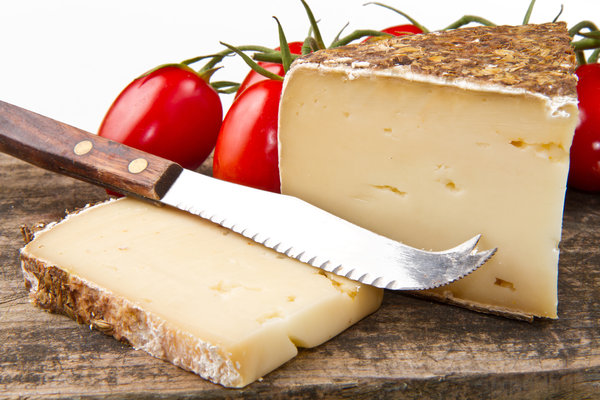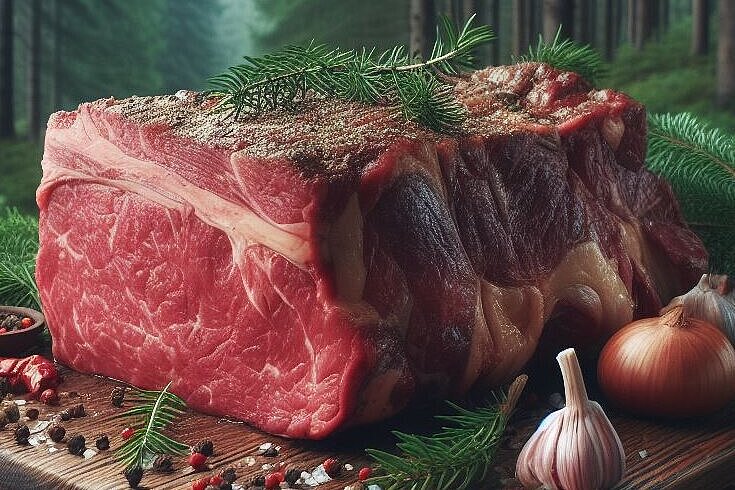Linoleic acid

The benefits of linoleic acid for dogs
Linoleic acid is an important building block for the formation of prostaglandins, which have anti-inflammatory and pain-relieving effects. It can therefore help with skin problems such as itching, dandruff or eczema. It also promotes a shiny and healthy coat.
Linoleic acid also supports your dog's immune system by regulating the activity of white blood cells. It can therefore reduce the risk of infections and allergies. Linoleic acid is also involved in the production of hormones that are important for reproduction, growth and metabolism.
The disadvantages of linoleic acid for dogs
Not all linoleic acid is the same. There are different forms of omega-6 fatty acids that can have different effects. Some of them can be pro-inflammatory and contribute to chronic diseases such as arthritis, diabetes or cancer. It is therefore important to pay attention to the correct ratio of omega-6 to omega-3 fatty acids.
Omega-3 fatty acids have opposite effects to omega-6 fatty acids and can reduce inflammation, protect the cardiovascular system and improve brain function. The ideal ratio of omega-6 to omega-3 is around 5:1 to 10:1, but many dog foods contain too much omega-6 and too little omega-3, which can lead to an imbalance.
How can you give your dog enough linoleic acid?
The optimal amount of linoleic acid for your dog depends on various factors, such as their age, size, activity level and health. A general recommendation is around 1 to 2 percent of their daily calorie intake. This corresponds to about 2 to 4 grams per kilogram of body weight per day.
You can provide your dog with linoleic acid from various sources, such as
- Vegetable oils such as sunflower, corn oil or safflower oil
- Nuts and seeds such as walnuts, almonds or linseed
- Meat and offal such as beef, chicken or liver
- eggs
- Dairy products such as cheese or yogurt
However, make sure that you do not feed too much linoleic acid, as this can lead to digestive problems or diarrhea. You should also always use high-quality oils that are cold-pressed and not refined. Refined oils can lose their valuable ingredients through heat or light or even form harmful substances.
Linoleic acid is an essential fatty acid that has many benefits for your dog's health. It can nourish the skin and coat, strengthen the immune system and support hormone production. However, you should make sure that you don't give your dog too much or too little linoleic acid and that you maintain the correct ratio of omega-6 to omega-3 fatty acids.
Properties 5
Are you looking for other ingredients with a specific property?
Just click on them to find more.
If you notice any signs of hypersensitivity or poisoning in your dog, you should see your vet immediately. We are not a substitute for a vet, but we try to be as accurate as possible. Every dog reacts differently and we recommend you get a second opinion or consult your vet if in doubt.
Stay healthy and take good care of your four-legged friend!😊
Similar to Linoleic acid
Cheese is a dairy product that coagulates through the addition of rennet or other enzymes. This produces a solid mass, the curd, and a liquid, the whey. The curd is further processed by pressing,...
Sunflower oil can have some health benefits for your dog if you feed it in moderation. For example, it can: Nourish and shine your dog's skin and coat.Support your dog's digestion and prevent...
Walnuts are the fruit of the walnut tree, which belongs to the beech family. They grow in a green shell that opens in the fall to reveal the nut. The nut has a hard, brown shell and a soft,...
Beef is the meat of various breeds of domestic cattle (Bos taurus) that are bred for meat production. There are many different cuts of beef that are suitable as dog food. These include Muscle meat:...



